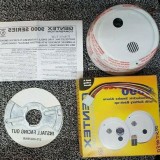Essential Aspects of Farm Records
Maintaining accurate records is crucial for the success of any farming operation. Farm records provide essential information for decision-making, tax compliance, and financial management. Understanding the key aspects of farm records is vital for maximizing their effectiveness. Essential aspects of farm records include:Data accuracy
Accurate data ensures that the records provide a reliable reflection of the farm's operations. This includes using the correct units of measurement, recording transactions as they occur, and verifying data for errors.Completeness
Complete records capture all relevant farm activities. This means including all income, expenses, assets, and liabilities. Omissions can lead to incorrect financial reporting and missed opportunities for improvement.Organization
Well-organized records facilitate easy retrieval of information. Using a consistent record-keeping system, categorizing transactions, and maintaining files for different types of records helps with this.Timeliness
Records should be updated regularly to ensure that they accurately reflect the current state of the farm's operations. This involves recording transactions promptly and closing the books on a timely basis.Accessibility
Records should be accessible to authorized personnel. This may involve storing records in a central location, providing secure online access, or making copies for specific purposes.Security
Records should be protected from unauthorized access or loss. This includes implementing physical security measures (e.g., locks) and digital security measures (e.g., encryption).Retention
Records should be retained for the appropriate period of time. This varies depending on the type of record and legal requirements. Keeping records for longer periods can provide historical data for analysis.Analysis
Regularly analyzing farm records allows farmers to identify trends, assess performance, and make informed decisions. This can help optimize operations, reduce costs, and increase profitability.Tax compliance
Accurate records are essential for tax compliance. They provide the necessary information for filing taxes accurately and minimizing the risk of audits.Financial management
Farm records are essential for financial management. They provide data for cash flow analysis, budgeting, and forecasting. This helps farmers plan for the future and make sound financial decisions. By focusing on these essential aspects, farmers can ensure that their farm records provide valuable information for optimizing operations, managing finances, and meeting regulatory requirements.
Types Of Farm Records Table

Types Of Farm Records Kept By Vegetable Farmers Scientific Diagram

Farm Record Keeping Practices Of Smallholders Table

Collecting And Organizing Your Farm Records Management

Ion Record Accuracy Check Template Farm Management

Definition Of Farm Records With Types Objectives Purposes

Give Two Examples Of Farm Records That Are General In Nature
Management For Freshwater Fish Culture

Types Of Records Kept By Lead Farmers Table
Secondary Engagement Programme Term Grade 10 Activity Sheets Agricultural Science
Related Posts








